Alibaba vs AliExpress: Which is Better?
This blog compares AliExpress and Alibaba to find out which platform suits your dropshipping, wholesale, or private label needs. Learn pricing, shipping, buyer protection, and more.


Choosing between AliExpress and Alibaba can feel confusing, especially if you’re new to online wholesale or dropshipping. Both platforms belong to the Alibaba Group but serve very different purposes. AliExpress works more like a retail marketplace where you can buy single items with fast shipping, ideal for dropshipping and small businesses. Alibaba, on the other hand, focuses on wholesale and bulk buying, perfect if you want to customize products or build a private label brand.
In this detailed guide, we’ll break down the key differences between AliExpress and Alibaba. You’ll learn about pricing, shipping times, supplier verification, buyer protection, and which platform fits your business model best. Whether you want to start dropshipping or buy wholesale, this guide gives you all the facts you need to make the right choice.
Key Takeaways
What is Alibaba?
If you’re searching for a one-stop solution to buy products in bulk or launch your own brand, Alibaba stands out as a global leader. Founded by Jack Ma in Hangzhou, Alibaba has grown into the world’s largest B2B (business-to-business) e-commerce platform. It connects millions of suppliers-mostly manufacturers and wholesalers in China-with buyers worldwide.
Whether you want to buy wholesale from Alibaba, start a dropshipping business, or source private label products, Alibaba offers a vast marketplace with competitive prices and customization options. In 2025, Alibaba’s international digital commerce group reported revenues of $4.6 billion for the March quarter, reflecting strong growth and continued innovation in AI and cloud services.
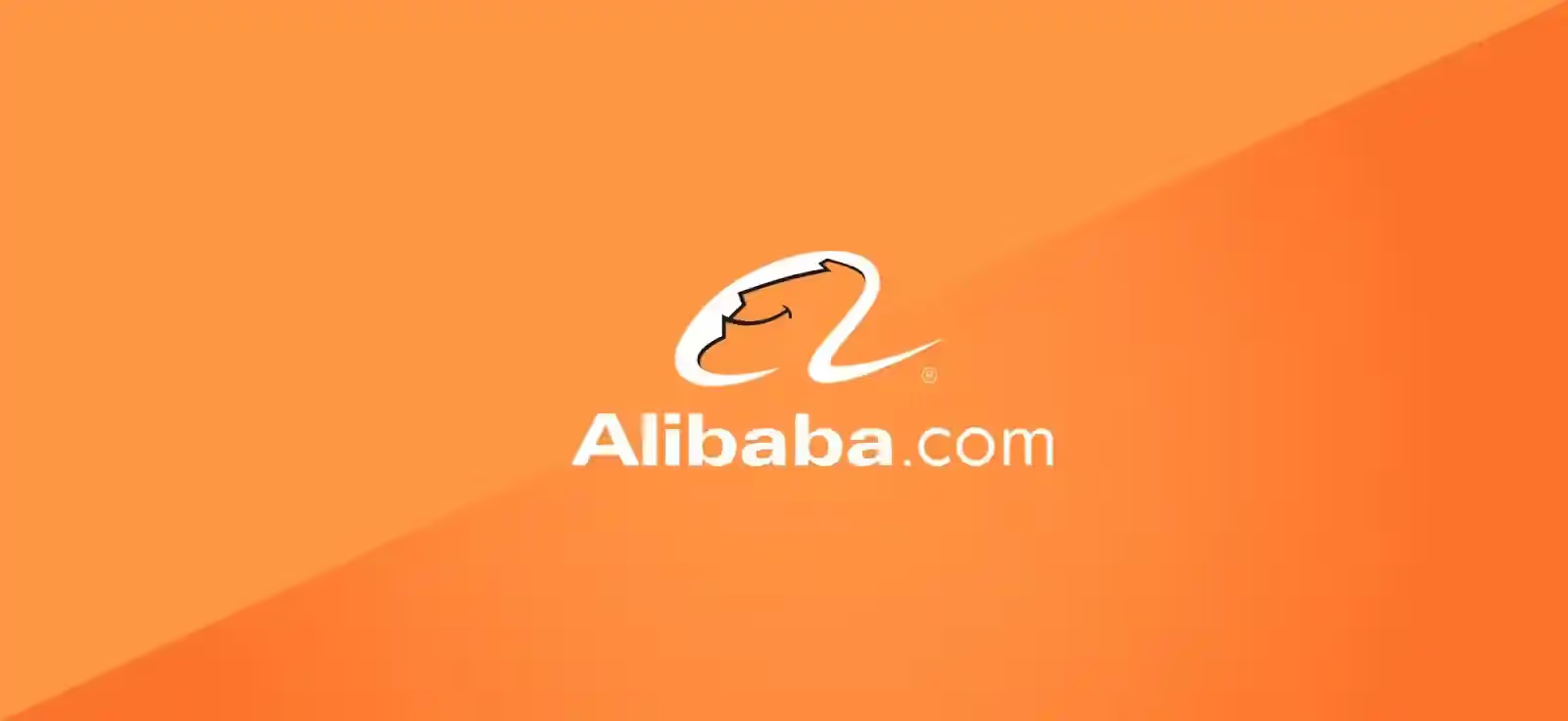
What Makes Alibaba Unique?
Alibaba isn’t just another online marketplace; it focuses on empowering small and medium-sized enterprises (SMEs).
- Unlike AliExpress, which targets retail consumers, Alibaba specializes in wholesale and bulk buying.
- Buyers can negotiate prices, request product samples, and customize products with their own logo or packaging—perfect for building a private label brand.
- Alibaba’s ecosystem offers supplier verification and trade assurance, making it safer for buyers to connect with reliable manufacturers.
- The platform uses AI-driven recommendations and verified supplier badges to ensure quality and trustworthiness.
- Alibaba also boasts a global logistics network, setting it apart from competitors like AliExpress, Amazon, Temu, and DHgate.
Typical Sellers on Alibaba
- Sellers: Mostly manufacturers, factories, and large wholesalers from China, India, Vietnam, and more.
- Products: Electronics, apparel, home goods, industrial equipment, and more.
- Orders: Bulk-focused with options for customization and branding.
- Trust: Verified badges like “Verified Plus” and “Trade Assurance.”
- Safety: Supplier verification reduces scams and increases buyer confidence.
Typical Buyers on Alibaba
- Buyer Types: Business owners, retailers, Amazon FBA sellers, dropshippers, entrepreneurs
- Purpose: Bulk buying, private label product creation, scaling businesses
- Range: Small startups to large enterprises
- Focus: Competitive pricing and product customization
- Order Requirements: Minimum Order Quantity (MOQ) typically required
- Comparison: Unlike AliExpress, Alibaba focuses on bulk rather than single-item purchases
- Use Case: Ideal for testing product samples before large orders
Alibaba’s Business Model Explained
Alibaba operates as a B2B marketplace, connecting global buyers with suppliers. The platform doesn’t own inventory; instead, it facilitates transactions and provides tools for negotiation, customization, and secure payments. Here’s how it works:
- Bulk Buying: Buyers can negotiate prices and order large quantities, which drives down the per-unit cost-perfect for wholesale and private label businesses.
- Customization: Suppliers offer options for custom branding, packaging, and product design.
- Supplier Verification: Alibaba verifies suppliers to reduce fraud and increase buyer confidence.
- Trade Assurance: This service protects buyers’ payments and ensures products are delivered as agreed.
Alibaba’s revenue comes from membership fees, advertising, and value-added services for suppliers, not from direct sales of goods.
Alibaba’s Payment and Shipping Options
- Payment Methods: Wire transfer, credit card, PayPal, Alipay
- Shipping Choices
- Express air (3–7 days)
- Economy air (10–14 days)
- ePacket (7–20 days)
- Sea freight for large orders (20–40 days)
- Logistics Network: Cainiao’s “Global 5-Day Delivery” to 14+ countries in 2025
- Tip: Always confirm shipping costs and delivery times with suppliers
- Variation: Shipping time and cost depend on order size and destination
What is AliExpress?
AliExpress is a global online retail marketplace owned by Alibaba Group. Launched in 2010 and headquartered in Hangzhou, China, AliExpress connects buyers from around the world directly with sellers, mostly small and medium businesses based in China. Unlike Alibaba, which focuses on wholesale and bulk buying, AliExpress lets you buy single items at affordable prices-no minimum order required. If you want to shop for gadgets, clothes, home goods, or even the latest merchandise, AliExpress offers millions of products in every category you can imagine. It’s a favorite for bargain hunters, dropshippers, and anyone looking for variety and ease of use.
Let’s explore what makes AliExpress stand out and how it works for both buyers and sellers.

Key Features of AliExpress
- Fixed Pricing: No need to negotiate; prices are set
- Product Range: Wide categories including electronics, fashion, toys, beauty, and more
- Dropshipping Friendly: Allows e-commerce stores to sell without holding inventory
- Direct Shipping: Sellers ship products directly to your customers
- Buyer Protection: Refunds available within 15 days if orders don’t arrive or match descriptions
- Multi-language Support: Accessible to a global audience
- Global Shipping: Ships internationally with multiple shipping options
Typical Sellers on AliExpress
- Seller Profile: Mostly small businesses and individual entrepreneurs
- Role: Often act as middlemen sourcing bulk products from factories
- Product Range: Clothing, electronics, home improvement, beauty products, and more
- Quantity: Sell products in smaller quantities to global consumers
- Manufacturing: Usually not manufacturers themselves
- Pricing: Offer competitive prices and wide product selection
Typical Buyers on AliExpress
- Buyer Types: Individual consumers and dropshippers
- Order Size: Suitable for single-item or small quantity purchases
- Accessibility: No business license or large budget required
- Dropshipping Use: Popular among dropshippers for order fulfillment
- Product Range: Wide variety of products available
- Shipping: Direct-to-customer shipping supported
AliExpress Business Model Overview
AliExpress operates as a B2C (business-to-consumer) platform. It doesn’t sell products itself but acts as an intermediary, connecting global buyers with sellers, mostly from China. Sellers list their products, and AliExpress provides the infrastructure-secure payment processing, logistics, translation, and customer service. The company earns revenue through commissions on each sale and offers paid advertising options to help sellers boost their product visibility.
This model allows AliExpress to offer millions of products at competitive prices, catering to both mainstream and niche markets. The platform’s customer-centric approach uses data analytics for personalized recommendations and efficient logistics, helping maintain low prices and high satisfaction.
Payment and Shipping Methods on AliExpress
- Payment Options: Credit cards, PayPal, and local payment methods worldwide
- Payment Security: Funds held securely until order receipt is confirmed
- Shipping Methods:
- AliExpress Standard Shipping (15–45 days)
- ePacket (7–20 days)
- AliExpress Premium Shipping (7–15 days)
- Express options like DHL, UPS, FedEx (3–7 days)
- Cost & Time: Varies by buyer location, seller, and chosen shipping method
- Tracking: Available for most shipping options to monitor package status
Alibaba vs AliExpress: Key Differences
If you’re searching for the ultimate guide to “Alibaba vs AliExpress,” you’re in the right place. Both platforms belong to the Alibaba Group, but they serve completely different needs. Whether you want to buy wholesale merchandise or just a single item, knowing these differences helps you make the right choice for your business or personal shopping.
Let’s break down the key differences.
1. Target Audience and User Intent
Alibaba is designed for businesses. Think wholesalers, Amazon FBA sellers, and entrepreneurs who want to buy in bulk or create private label products. You’ll find procurement managers and business owners negotiating container loads and building long-term supplier relationships.
AliExpress, on the other hand, is for everyday consumers and small businesses. You don’t need a business license or a big budget. Want to try out a single product or test a new product idea? AliExpress is your go-to for low-commitment, retail shopping.
2. Product Pricing and Minimum Order Quantities (MOQs)
Alibaba specializes in bulk buying. You get lower per-unit prices, but suppliers usually set a minimum order quantity (MOQ)-often 100, 500, or even 1,000 units. This is perfect if you want to buy wholesale from Alibaba and negotiate the best deal.
AliExpress doesn’t have MOQs. You can buy just one item at a time. Prices per unit are higher than on Alibaba, but you avoid the risk of overstocking or making a big investment upfront. This makes AliExpress ideal for testing products or buying for personal use.
3. Product Customization and Branding Options
Alibaba is the king of customization. You can work directly with manufacturers to add your own branding, packaging, and even request custom designs. This is essential for private label businesses and anyone who wants to stand out in the market.
AliExpress offers ready-made products. There’s little to no option for customization or branded packaging. What you see is what you get, which is great for quick purchases but not for building a unique brand.
4. Shipping Time, Costs, and Logistics
Alibaba shipping is built for bulk. You’ll often choose between sea freight (cheaper but slower-can take weeks) and air freight (faster but more expensive). Shipping costs and logistics can be complex, especially with customs and import duties. Some Alibaba suppliers now offer US or EU warehouses for faster delivery, but that’s still the exception.
AliExpress shipping is simple and often free or low-cost. Most products ship via AliExpress Standard Shipping, ePacket, or local couriers. Delivery usually takes 15–45 days, but express options like DHL or FedEx are available for a fee. Tracking is included on most orders, and shipping is much less complicated than Alibaba’s process.
5. Buyer Protection and Customer Service
AliExpress shines with its buyer protection policy. If your order doesn’t arrive or isn’t as described, you can open a dispute and get a refund. The platform holds your payment until you confirm delivery, giving you peace of mind.
Alibaba offers Trade Assurance, which protects your payment until you receive your order as agreed. However, the process can be more formal, and resolving disputes may take longer, especially for large or custom orders.
6. Supplier Verification and Quality Assurance
Alibaba has a robust supplier verification system. Look for badges like “Verified Supplier” and “Trade Assurance” to ensure you’re dealing with reputable manufacturers. You can request samples and even visit factories virtually or in person.
AliExpress sellers are mostly trading companies or small businesses. While you can check reviews and ratings, there’s less transparency about the supply chain. Quality can vary, so always read product reviews and seller feedback before buying.
7. Payment Security and Options
Alibaba supports payment methods like wire transfer, credit card, Alipay, and sometimes PayPal. For large orders, you can negotiate payment terms or use Alibaba’s Secure Payment (escrow) service to hold funds until you’re satisfied.
AliExpress makes payment easy for consumers. You can use credit cards, debit cards, PayPal, and even local payment methods. The platform’s payment system is streamlined for fast, secure transactions, and you’re protected until you confirm delivery.
Which Platform is Better for Dropshipping?
Choosing between Alibaba and AliExpress for dropshipping can feel overwhelming, especially if you want to build a business around trending products. Both platforms belong to the Alibaba Group, but they serve different needs and business models. Let’s break down which one fits your dropshipping goals and how you can get started right away.
Using AliExpress for Dropshipping
AliExpress is the go-to dropshipping platform for most entrepreneurs starting out. You don’t need to buy in bulk or worry about minimum order quantities. You simply list products in your online store, and when a customer orders, you buy the item on AliExpress and have it shipped directly to your buyer. This makes AliExpress dropshipping perfect for testing new niches, like custom merchandise, without a big upfront investment.
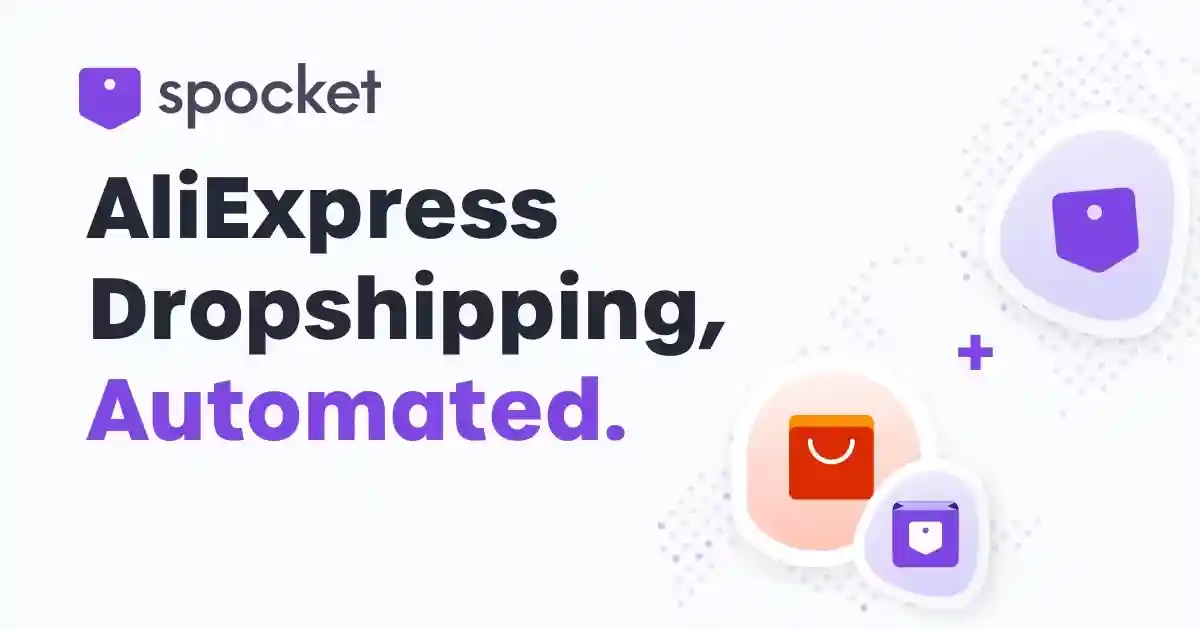
Step-by-Step Dropshipping on AliExpress
- Set Up Your Store: Build a store using Shopify, WooCommerce, or another e-commerce platform. Make sure your site is user-friendly and optimized for mobile shoppers.
- Find Winning Products: Search for popular items on AliExpress. Use filters to sort by orders and ratings. Look for reputable sellers with strong feedback.
- Import Products: Use a dropshipping app like Spocket or AliDrop to import products from AliExpress to your store. Customize product descriptions and images for better SEO and branding.
- Set Pricing and Shipping: Decide your profit margins. AliExpress offers competitive prices, so you can still make a profit after shipping costs. Choose shipping options like AliExpress Standard Shipping or ePacket for faster delivery.
- Process Orders: When a customer orders, purchase the product from AliExpress. Enter your customer’s shipping details. The supplier ships directly to your customer, so you never handle inventory.
- Track Shipments and Handle Support: Provide tracking to your customers. If there’s an issue, use AliExpress’s buyer protection to resolve disputes quickly.
Using Alibaba for Dropshipping
Alibaba is traditionally a B2B wholesale platform, but you can still use it for dropshipping if you want more control over branding or plan to scale up. Some suppliers on Alibaba offer dropshipping services, but you need to communicate directly and negotiate terms. This is ideal if you want to sell custom products or private label items.
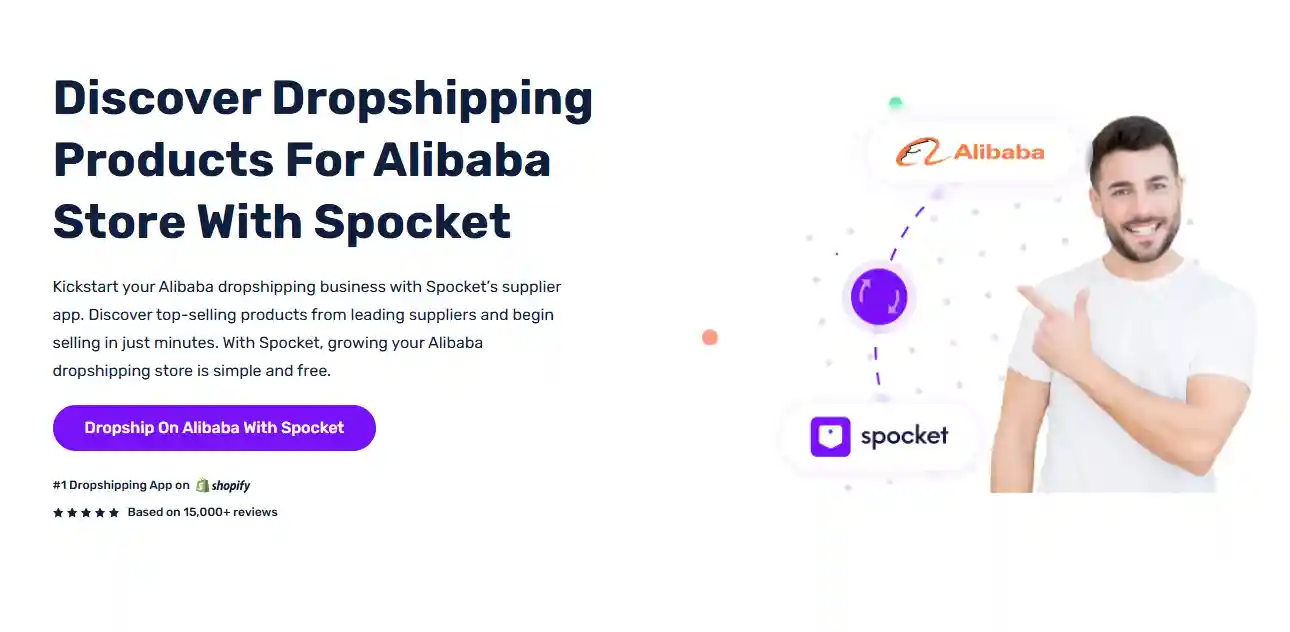
How Dropshipping Works on Alibaba
- Find a Dropshipping-Friendly Supplier: Search for suppliers willing to fulfill single orders. Look for those who mention dropshipping or low MOQs in their listings.
- Negotiate Terms: Contact suppliers directly. Discuss dropshipping, shipping times, customization, and payment options. You may need to order samples first to check quality.
- Customize Products: If you want private label items, discuss branding and packaging options. Alibaba suppliers often allow for deep customization.
- Place Orders as Needed: When you make a sale, place an order with your supplier and provide customer shipping details. Some suppliers can automate this, but often it’s a manual process.
- Track and Support: Request tracking numbers and monitor deliveries. Alibaba’s Trade Assurance can protect your payments, but dispute resolution may take longer than AliExpress.
Pros and Cons of Dropshipping via AliExpress vs Alibaba
When you compare AliExpress and Alibaba for dropshipping, each platform has clear strengths and weaknesses. Understanding these will help you choose the right fit for your business-whether you want to sell trending products or build a private label brand.
Pros of Dropshipping with AliExpress
- No Minimum Order Quantity (MOQ): You can order products one at a time, making AliExpress perfect for dropshipping and testing new items without upfront investment.
- Easy to Start: AliExpress is designed for dropshipping. You don’t need to negotiate with suppliers or commit to bulk orders. Just list products, make sales, and suppliers ship directly to your customers.
- Wide Product Selection: Access millions of products across countless categories, including trending niches.
- Affordable Pricing: Prices are competitive, and you can often find free or low-cost shipping options, helping you maintain healthy margins.
- Global Shipping: AliExpress suppliers ship worldwide, so you can serve customers in almost any country.
- Automated Integrations: Tools like DSers and AutoDS make it easy to import products, sync inventory, and fulfill orders.
- Buyer Protection: AliExpress offers buyer protection, including refunds for late or undelivered orders, which gives peace of mind to both you and your customers.
Cons of Dropshipping with AliExpress
- Long Shipping Times: Most products ship from China, so delivery can take 1–3 weeks or longer, which may frustrate customers in markets used to fast shipping.
- Low Profit Margins: High competition and low prices mean margins can be thin unless you find unique products or suppliers.
- Limited Branding: Most products come in generic packaging, making it hard to build a unique brand or offer a custom experience.
- Inventory Control: You have little control over stock levels. If a supplier runs out, your listing could be affected.
- Customer Service Challenges: Returns and exchanges can be slow and complicated, and language barriers may make communication with suppliers tricky.
Pros of Dropshipping with Alibaba
- Bulk Discounts and Negotiation: You can negotiate prices, shipping, and terms for better deals, especially if you’re scaling up or want to buy in bulk.
- Customization and Branding: Alibaba suppliers often offer private label options, so you can create custom products and branded packaging-great for building a unique store.
- Supplier Verification: Alibaba’s supplier verification and Trade Assurance programs help you find reliable partners and protect your payments.
- Scalability: If you want to grow your business or move into wholesale, Alibaba makes it easy to scale up with larger orders and custom manufacturing.
Cons of Dropshipping with Alibaba
- Higher Minimum Orders: Most suppliers require MOQs, making it harder for new dropshippers or those with limited budgets to get started.
- Complex Setup: You need to negotiate with suppliers, discuss terms, and sometimes wait for production-this takes more time and effort than AliExpress.
- Longer Lead Times: Production and shipping can take weeks, especially for custom products or bulk orders.
- Less Automation: Fewer dropshipping tools integrate directly with Alibaba, so order processing may be more manual.
- Upfront Investment: You may need to pay more upfront for samples, customizations, or bulk orders.
Alibaba vs AliExpress for Wholesale and Bulk Buying
When you’re ready to buy products in bulk or want the best deal for your business, the choice between Alibaba and AliExpress matters. Both platforms belong to the Alibaba Group, but each serves a different purpose. Alibaba is built for wholesale and large orders, while AliExpress is more about convenience and small quantities. Let’s break down how each platform handles wholesale pricing, bulk purchases, and custom orders so you can make the smartest decision for your business needs.
Wholesale Pricing on Alibaba
Alibaba is the top choice for wholesale buyers. The platform connects you directly with manufacturers and large suppliers, which means you get access to real wholesale prices. The more you order, the lower your per-unit cost. For example, if you order 500 t-shirts, you might pay $5 each, but if you order 2,000, the price could drop to $4 each.
What’s even better, Alibaba allows you to negotiate prices with suppliers. You can discuss discounts, shipping, and even payment terms. This flexibility is perfect for businesses that want to maximize profit margins. Keep in mind, most suppliers on Alibaba set a minimum order quantity (MOQ), often starting at 100 units or more. This model is ideal for established businesses or anyone looking to scale quickly.
Bulk Purchase Options on AliExpress
AliExpress is more retail-focused, but you can still buy in bulk if you want. The main difference is that prices are fixed and usually higher per unit compared to Alibaba. There’s no MOQ, so you can order as few or as many items as you like-even just one. This is great if you’re testing new products or running a small shop.
Some sellers on AliExpress offer discounts for larger orders, but you won’t have the same negotiation power as on Alibaba. Shipping is usually simpler, with many products offering free or low-cost delivery. AliExpress handles payment and logistics, making it easy for beginners or small businesses to get started without the complexity of bulk shipping arrangements.
Negotiation and Custom Orders
Alibaba excels in custom orders and direct negotiation, allowing you to personalize products with your logo, packaging, and unique designs. This makes it ideal for private label brands seeking flexibility. In contrast, AliExpress offers mostly ready-made products with limited customization options, making Alibaba the better choice for branding and custom packaging needs.
In summary:
- Choose Alibaba if you want true wholesale pricing, bulk buying, and full control over custom products. You can negotiate every detail and build a unique brand.
- Choose AliExpress if you need smaller quantities, want simple ordering, or are just starting out. It’s easy, fast, and great for testing products without a big investment.
Private Label and Branding Opportunities
Building your own brand is the fastest way to stand out in today’s market, especially if you want to sell products like tshirts, mugs etc. Both Alibaba and AliExpress offer private label and branding options, but their approaches and flexibility are very different. Let’s break down what you can expect from each platform so you can make the best choice for your business.
Customizing Products on Alibaba
Alibaba is the gold standard for private label and branding. Here, you connect directly with manufacturers who can turn your vision into reality. Want your logo on t-shirts, mugs, or custom packaging? Alibaba suppliers are ready to help you create unique products that carry your brand’s identity.
You get full control over:
- Product Design: Share your artwork or logo, and manufacturers will produce items to your exact specs.
- Packaging: Request custom boxes, bags, or inserts to reinforce your brand.
- Bulk Orders: Most suppliers require a minimum order quantity (MOQ), but this lets you negotiate better pricing and ensures your products are exclusive to your brand.
- Negotiation: You can discuss every detail, from materials to delivery timelines, directly with the factory.
Private Labeling on AliExpress
AliExpress is more about speed and convenience, but private labeling is possible in certain cases. Some suppliers offer to add your logo or custom packaging, especially if you order in higher quantities. However, most products on AliExpress are ready-made, so your options for deep customization are limited compared to Alibaba.
Here’s what you can expect:
- Logo Printing: Some sellers will print your logo on products if you ask and meet their minimum order requirements.
- Custom Packaging: A few suppliers offer branded packaging, but this is less common and usually requires bulk orders.
- Product Selection: You get access to a huge variety of products, but most are generic and not exclusive to your brand.
- Ease of Use: You can place orders quickly and consolidate shipments, making it ideal for testing new products or starting small.
How to Buy and Sell on Alibaba
If you want to buy or sell wholesale products, Alibaba is a powerhouse platform. It connects you directly with manufacturers and suppliers worldwide, making it a favorite for businesses looking to scale or launch private label brands. Let’s make the process simple and actionable, whether you’re a buyer or a seller.
Buying on Alibaba
Buying on Alibaba means you’re shopping in bulk. Start by searching for your product, like “god of war logo t-shirts.” Use filters to compare verified suppliers, check their ratings, and read reviews. Always look for suppliers with Alibaba’s Gold Supplier badge or Trade Assurance for extra security.
Once you find a supplier, reach out directly. Ask about minimum order quantities (MOQ), pricing, customization, and shipping options. Negotiation is common on Alibaba, so don’t hesitate to discuss price, especially for large orders. Request product samples before committing to a big purchase. When you’re ready, confirm the order, choose a secure payment method (like Alibaba’s Trade Assurance), and track your shipment. Bulk shipping usually happens by sea or air, so factor in delivery times.
Selling on Alibaba
Selling on Alibaba opens your business to a global audience. Start by registering as a supplier and setting up your storefront. List your products with detailed descriptions, clear photos, and competitive pricing. Highlight customization options, such as adding a logo or custom packaging, to attract buyers.
Respond quickly to inquiries and be transparent about MOQs, pricing, and shipping. The more responsive and reliable you are, the more likely you’ll earn repeat business. Use Alibaba’s verification programs, like Gold Supplier status, to build trust with buyers. Offer Trade Assurance to give buyers peace of mind and boost your conversion rates.
How to Buy and Sell on AliExpress
AliExpress is the go-to platform for buying single items or small batches, making it perfect for dropshippers, small businesses, and casual shoppers. It’s user-friendly and fast, with no need for negotiations or bulk commitments.
Buying on AliExpress
Buying on AliExpress is as easy as shopping on Amazon. Search for your product-maybe a mug or hoodie-and use filters to sort by ratings, price, or shipping speed. Check seller ratings, read customer reviews, and look for “Top Brand” badges for extra reliability.
Add products to your cart, choose your shipping method (standard, premium, or express), and check out using secure payment methods like credit card or AliPay. AliExpress offers buyer protection, so if your order doesn’t arrive or isn’t as described, you can request a refund within 15 days of delivery. Shipping is usually fast for ready-made products, and tracking is included.
Selling on AliExpress
Selling on AliExpress is ideal for small businesses or individuals who want to reach global shoppers without handling bulk logistics. Register as a seller, set up your store, and list your products with clear descriptions and sharp images. Competitive pricing and free shipping options can help you stand out.
AliExpress handles payments and offers a straightforward refund policy, so you don’t have to worry about complex disputes. Focus on great customer service, fast response times, and maintaining high ratings. If you want to dropship, you can list trending items and have suppliers ship directly to your customers, keeping your business lean and scalable.
Common Concerns: Fakes, Quality Issues, and Returns
Buying products on Alibaba or AliExpress can be exciting but also raises concerns about fakes, quality, and returns. Let’s explore how both platforms handle these issues so you shop smart and safe.
Handling Counterfeit Products
Counterfeits exist on both Alibaba and AliExpress, but both platforms actively fight them. They use AI detection and a “Three-Strikes” policy to remove repeat offenders quickly. You can report fake listings via Alibaba’s Intellectual Property Protection (IPP) platform, which reviews complaints within 24–72 hours. Always buy from verified suppliers, check reviews, and avoid deals that look too good to be true to reduce risk.
Managing Returns and Refunds on Alibaba
Alibaba’s Trade Assurance protects buyers by holding payments until you confirm product quality. If your bulk order arrives damaged or fake, you can file a claim for a refund. Returns on Alibaba can be slow and costly due to international shipping, so clarify return policies before ordering and consider third-party inspections.
Managing Returns and Refunds on AliExpress
AliExpress offers strong buyer protection. If your order is damaged or not as described, open a dispute within 15 days of delivery. AliExpress holds your payment until you’re satisfied. Refunds are often quick, and sometimes you don’t even need to return low-cost items. Always check seller ratings and reviews to avoid issues.
Shipping Challenges: Costs vs. Speed
Shipping is a major factor when choosing between Alibaba and AliExpress, especially if you’re sourcing popular products. Both platforms offer global delivery, but the balance between cost and speed can shape your entire buying experience. Let’s break down how each platform handles shipping expenses and delivery times so you can plan smarter.
Shipping Cost Comparison
Alibaba mainly handles bulk orders, so shipping costs can add up quickly. For small shipments, air shipping usually costs between $6 and $15 per pound, which works well for samples or urgent orders. Larger shipments often use sea freight, which is much cheaper per unit but takes longer to arrive. For example, sending a 0.5 kg package via express shipping might cost $5 to $15, while sea freight for big orders can be as low as $2 to $2.50 per kg. Shipping costs vary depending on the order size, shipping method, and destination. Many buyers save money by letting the supplier handle shipping and include it in the invoice.
AliExpress, in contrast, serves individual buyers and small businesses. Many sellers offer free or low-cost shipping, especially for lightweight items. Although product prices are usually higher than on Alibaba, shipping is often free or very affordable. This makes AliExpress popular with dropshippers and those trying out new products without committing to large orders.
Delivery Times and Reliability
Alibaba’s shipping times depend on your chosen method. Air express can deliver in 3–10 business days, while air freight takes 20–45 days, and sea freight can stretch up to 60 days for large shipments. Bulk orders often take longer due to customs and logistics coordination.
AliExpress shipping is generally faster for small parcels. Standard shipping takes 10–45 days, while premium options like AliExpress Premium Shipping or private couriers can deliver in 5–10 days. Delivery reliability is solid for small packages, but delays can occur during holidays or for remote destinations.
Customer Support and Buyer Protection Policies
A smooth buying experience isn’t just about price and shipping-it’s also about feeling secure if something goes wrong. Both Alibaba and AliExpress have buyer protection systems, but they work a bit differently.
Alibaba’s Buyer Protection
Alibaba offers Trade Assurance, which holds your payment until you confirm your order arrives as promised. If the product is late, damaged, or not as described, you can file a claim for a refund. This system is especially valuable for bulk orders, but returns can be slow and costly due to international shipping.
AliExpress Buyer Protection
AliExpress puts buyer protection front and center. If your order is late, fake, or not as described, you can open a dispute within 15 days of delivery. AliExpress holds your payment until you confirm satisfaction, and many refunds are processed quickly-sometimes without needing to return the item, especially for low-cost goods. Their customer service is accessible by phone, email, and live chat, but user reviews rate it at 1.4 out of 5, citing slow responses and mixed satisfaction.
Which Platform Offers Better Support?
For bulk buyers and businesses, Alibaba’s Trade Assurance provides strong protection, but the process can be formal and slower. AliExpress is more user-friendly for individual buyers and dropshippers, with easier dispute resolution and faster refunds. However, both platforms have room to improve in customer service, so always check seller ratings and reviews before purchasing.
Conclusion
Alibaba and AliExpress serve different needs for buyers and sellers. Alibaba is ideal for wholesale products, offering bulk pricing, customization, and private label options. It suits businesses ready to negotiate and manage longer shipping times. AliExpress works best for small orders, dropshipping, and quick product testing with easy buyer protection and affordable shipping. Both platforms provide global reach and secure payments, but your choice depends on order size, branding needs, and speed. Use this guide to pick the right platform and grow your business confidently in 2025.
FAQs on AliExpress vs Alibaba
Which is better, Alibaba or AliExpress?
Alibaba is best for businesses needing wholesale, bulk buying, and product customization. AliExpress is better for individuals or small businesses wanting single items, quick purchases, or dropshipping.
What are the disadvantages of AliExpress?
AliExpress has slow and unpredictable shipping, no bulk discounts, difficult scaling, limited quality control, and inconsistent customer service. Returns can also be complicated.
Is AliExpress owned by Alibaba?
Yes, AliExpress is owned by the Alibaba Group.
Why is AliExpress so cheap?
AliExpress connects buyers directly with manufacturers, cutting out middlemen. It also benefits from bulk production and aggressive discount strategies.
Is Alibaba 100% safe?
Alibaba is generally safe, especially when using verified suppliers and Trade Assurance. However, risks exist, so always check supplier ratings and communicate clearly.
Why is Alibaba expensive?
Alibaba can seem expensive due to minimum order quantities, customization, and international shipping costs. However, unit prices are low for bulk orders.
How long does Alibaba take to ship?
Shipping from Alibaba varies: air shipping takes 3–10 days, sea freight can take 20–60 days, depending on the method and destination.
How long does AliExpress take to ship?
AliExpress shipping usually takes 10–45 days for standard delivery, with faster options available at higher cost.
Is it safe to buy from AliExpress?
Yes, AliExpress is safe for buyers, especially when you use buyer protection, check seller ratings, and read reviews.
Can you buy directly from AliExpress?
Yes, anyone can buy directly from AliExpress without needing a business license or bulk order.
Launch your dropshipping business now!
Start free trialRelated blogs
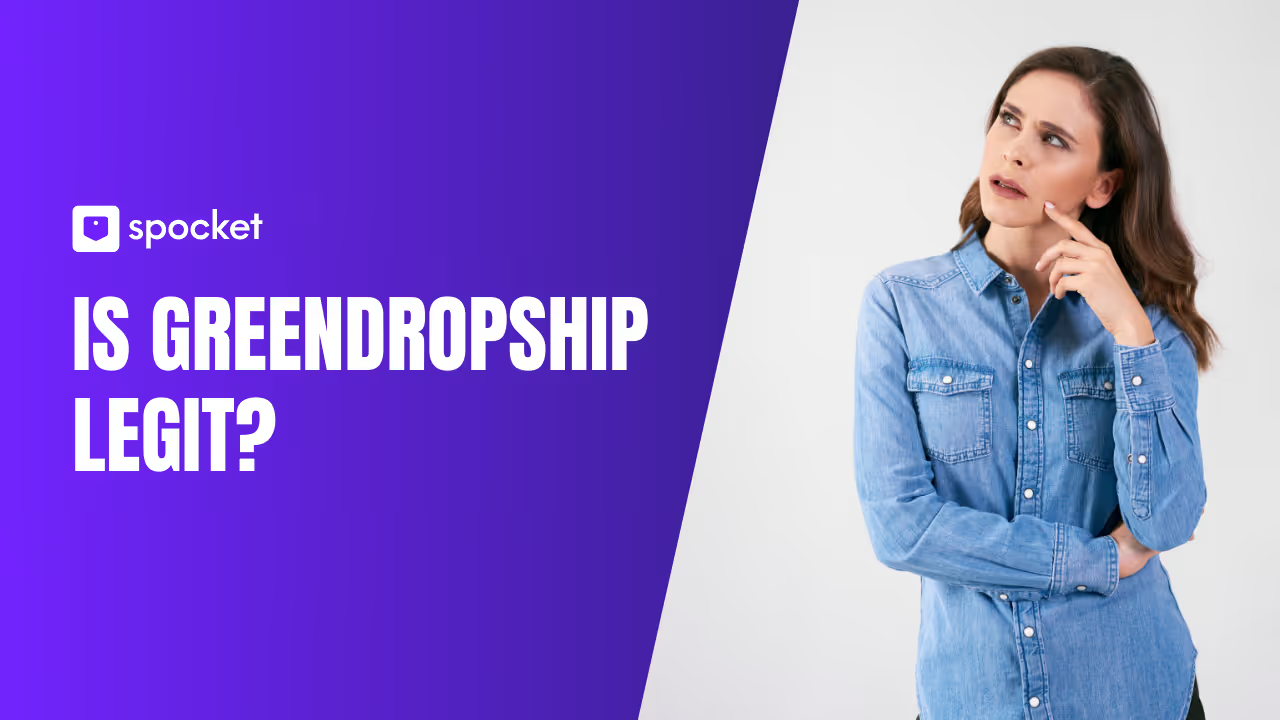
Is GreenDropShip Legit? Here’s a Full GreenDropShip Review
Are you asking, is GreenDropShip legit? We look at real user experiences, shipping speeds, and product quality. Read our review before you sign up.
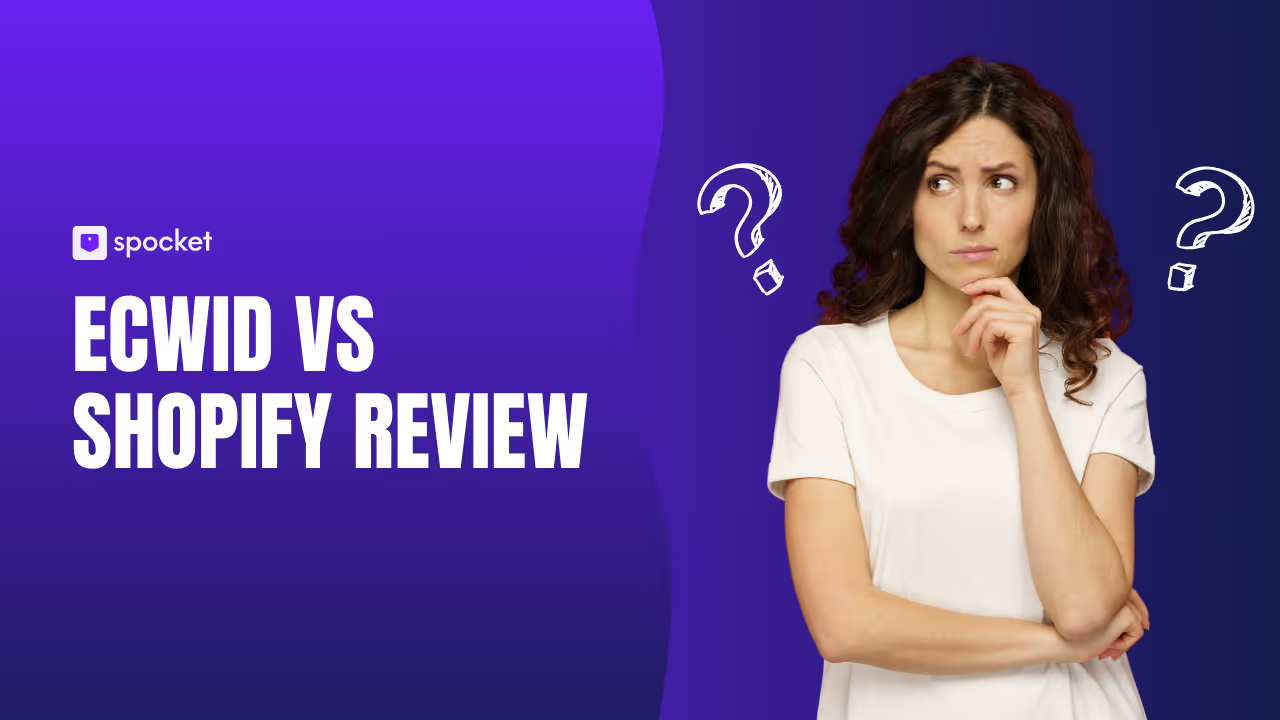
Ecwid vs. Shopify: Which is Better for Building an Online Store?
Stuck between Ecwid vs. Shopify? We compare ease of use, pricing plans, and dropshipping tools to guide your decision in 2026.
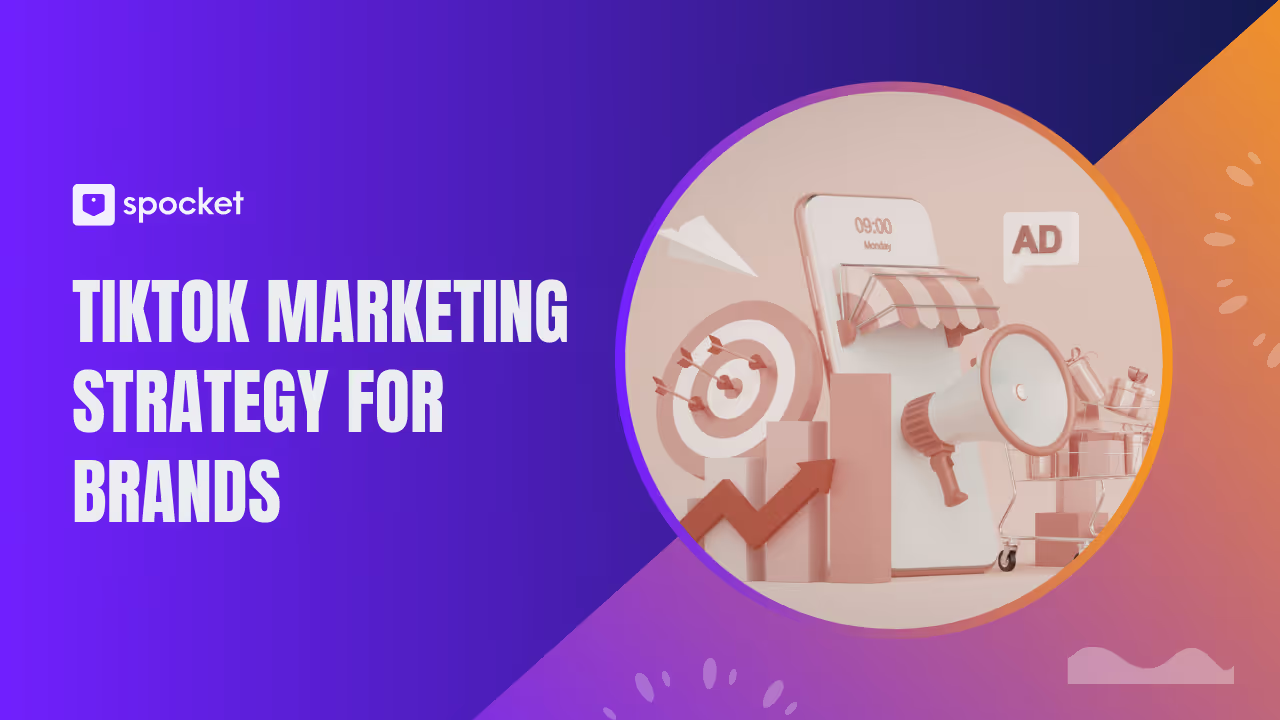
TikTok Marketing Strategy for Brands
Learn how to build a TikTok marketing strategy that drives brand awareness, engagement, and sales with proven tactics, examples, and tools.


































